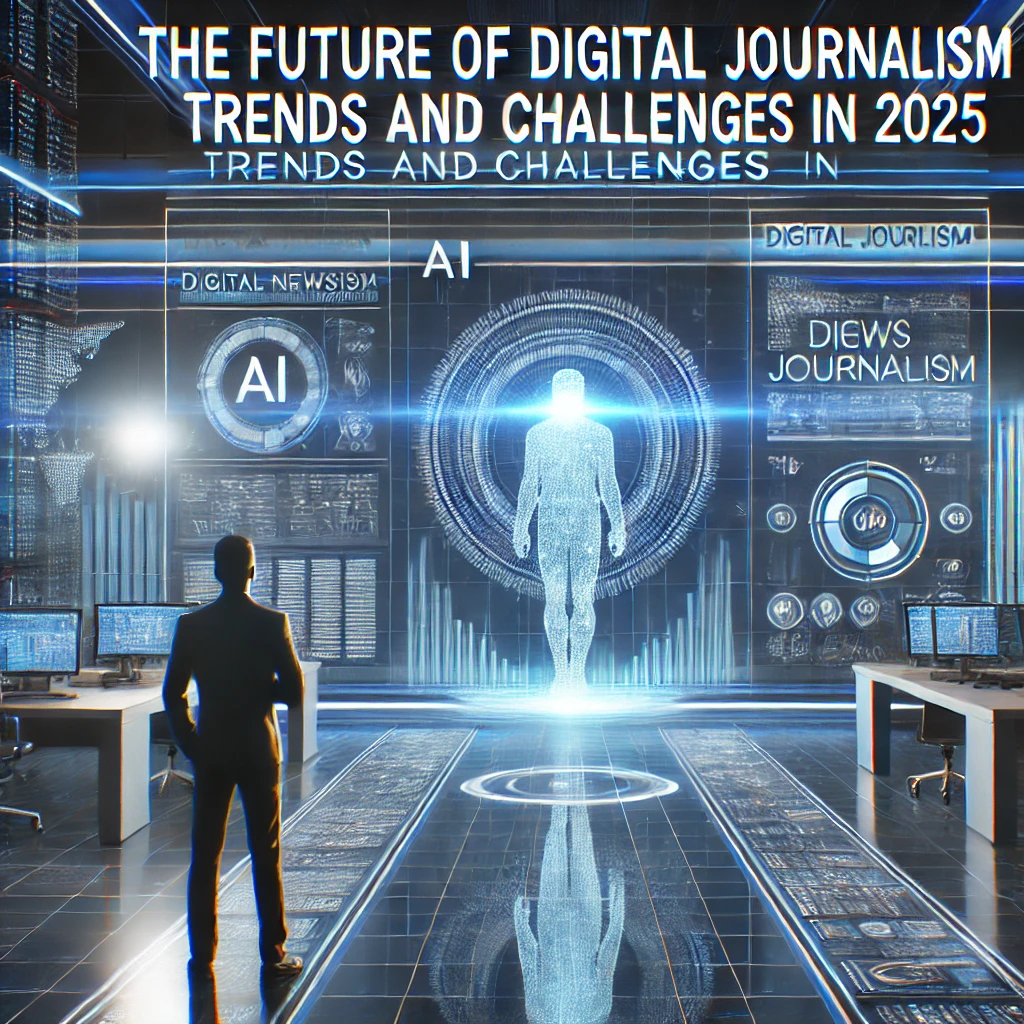How Artificial Intelligence is Transforming News Reporting in 2025
Introduction
Artificial Intelligence (AI) is reshaping the way news is produced, distributed, and consumed. From automated content creation to real-time fact-checking, AI-powered journalism is revolutionizing the media industry. In this article, we will explore how AI is transforming news reporting in 2025, its benefits, challenges, and ethical implications.
1. AI-Powered News Writing and Automation
AI-driven tools like GPT-based models and automated news generators are capable of writing articles, summarizing reports, and even creating video news content.
Key Benefits:
Speed and Efficiency: AI can generate reports in seconds, especially for breaking news and financial data updates.
Data-Driven Journalism: AI analyzes vast datasets to create in-depth reports with accurate insights.
Multilingual Content: AI enables instant translation and localization of news for a global audience.
However, AI-generated content still lacks the human touch needed for investigative journalism and nuanced storytelling.
2. Real-Time Fact-Checking and Misinformation Control
Fake news and misinformation have become major challenges in the digital age. AI plays a crucial role in detecting and preventing the spread of false information.
How AI Helps:
Deepfake Detection: AI tools analyze video and audio content to identify manipulated media.
Source Verification: AI cross-checks information with credible sources before publishing.
Automated Alerts: News agencies use AI-driven alerts to flag potentially misleading content.
Despite these advancements, AI is not foolproof and requires human oversight to ensure accuracy.
3. Personalized News Feeds and User Experience
AI enhances user engagement by curating personalized news feeds based on reading habits, interests, and browsing history.
AI-Driven Enhancements:
Customized Content: AI suggests articles tailored to individual preferences.
Voice Assistants & Chatbots: AI-powered assistants provide news summaries and real-time updates.
Smart Notifications: AI predicts relevant news topics and delivers them to users at the right time.
While personalized news improves engagement, it also raises concerns about information bias and filter bubbles.
4. AI in Investigative Journalism
Investigative journalism requires extensive research, data collection, and pattern recognition. AI assists journalists in:
Analyzing Large Datasets: AI detects trends and anomalies in financial, political, and social issues.
Identifying Fake Social Media Accounts: AI detects bots and misinformation campaigns.
Predictive Journalism: AI forecasts potential news trends based on historical data.
Despite its advantages, AI cannot replace human intuition and ethical decision-making in investigative reporting.
5. Ethical and Legal Challenges of AI in Journalism
AI-driven journalism raises several ethical and legal concerns, such as:
Bias in AI Algorithms: AI may reflect biases in training data, leading to unfair or misleading news coverage.
Job Displacement: Automation threatens traditional journalism jobs.
Accountability and Transparency: Who is responsible for AI-generated misinformation?
Media organizations must establish guidelines to ensure ethical AI use while maintaining journalistic integrity.
Conclusion
AI is transforming news reporting by making journalism faster, more data-driven, and personalized. However, it also presents challenges that require careful management. The future of journalism lies in balancing AI’s efficiency with human editorial oversight to maintain credibility, accuracy, and ethical reporting.
What’s Next?
Will AI replace human journalists entirely, or will it serve as a tool for enhancing news coverage? Share your thoughts in the comments below!


